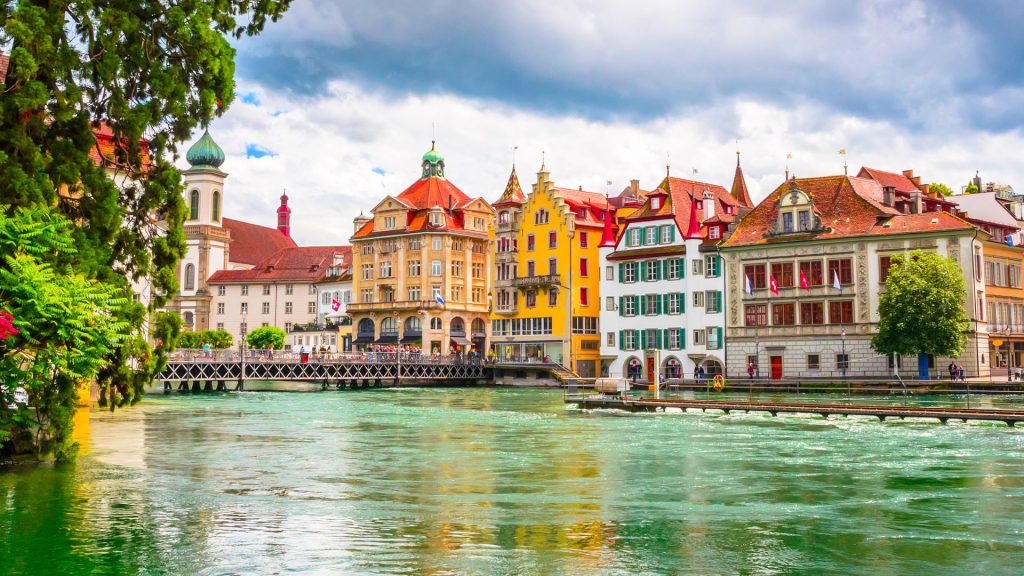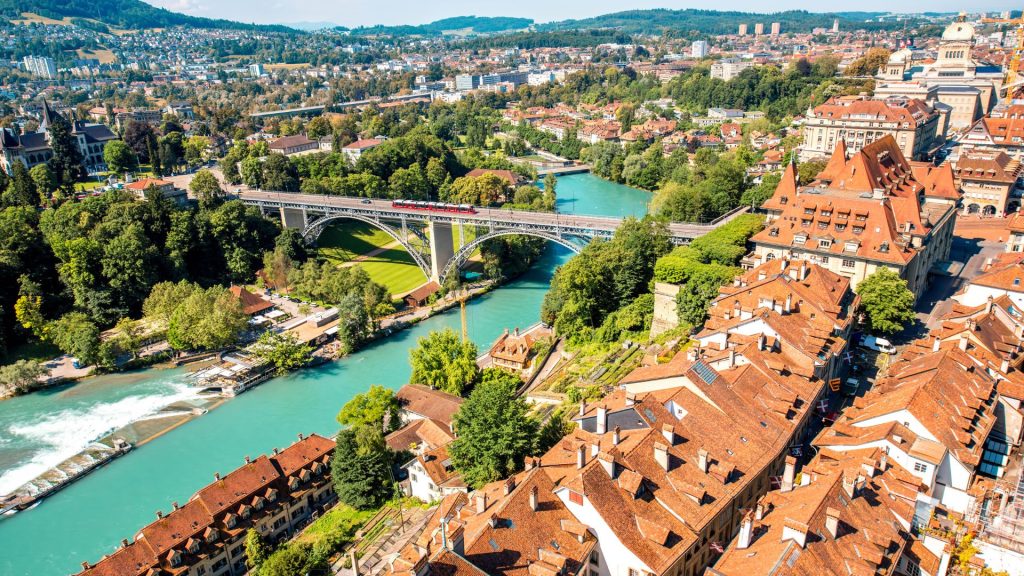Moving to Switzerland can be one of the most rewarding experiences of your life. With its breathtaking landscapes, high living standards, and excellent public services, it is no wonder that more and more people are setting their sights on this stunning country. However, relocating to Switzerland involves various steps, from obtaining the right visa to finding housing and acclimating to the culture. In this comprehensive guide, we will explore the detailed process of moving to Switzerland step by step.

Step 1: Research and Planning
1.1 Understand Why You Want to Move
Before making any plans, take some time to reflect on why you want to move to Switzerland. Is it for work, education, quality of life, or personal reasons? Identifying your motivation will help shape your research and drive your planning.
1.2 Explore Different Regions
Switzerland is made up of 26 cantons, each with its own unique culture, language, and lifestyle. Here are some important regions to consider:
- Zurich: The largest city and financial hub, Zurich offers a mix of urban life and natural beauty.
- Geneva: Known for its international organizations, Geneva is a cosmopolitan city with a vibrant cultural scene.
- Bern: The capital city, Bern is characterized by its medieval architecture and charming old town.
- Lucerne: A picturesque small town, Lucerne is famous for its lakes and mountains.
- Lausanne: Home to the Olympic Museum, this city is known for its educational institutions and vibrant nightlife.
1.3 Cost of Living
Switzerland is known for its high cost of living. Research housing, transportation, food, and healthcare costs in the region you are considering to budget appropriately. Websites like Numbeo and Expatistan can provide valuable insights into living expenses.
1.4 Learn About Swiss Culture and Languages
Switzerland has four official languages: German, French, Italian, and Romansh. The predominant language varies by region. Learning the local language will not only facilitate day-to-day life but will also help you connect with the community.

Step 2: Determine Visa Requirements
2.1 Understand Visa Types
Your nationality will determine the type of visa you need to live and work in Switzerland.
- EU/EFTA Nationals: Citizens from the EU and EFTA countries can reside and work in Switzerland with minimal restrictions.
- Non-EU Nationals: If you are not from an EU/EFTA country, obtaining a visa can be more challenging. You usually need a job offer or be enrolled in an educational program.
2.2 Apply for the Proper Visa
Work Visa
- Find a Job: Before you can apply for a work visa, you need a job offer from a Swiss employer. Attend job fairs, network, or look on job boards such as Indeed and LinkedIn.
- Employer Sponsorship: Your employer must apply for a work permit on your behalf. They must prove that they couldn’t find a suitable Swiss or EU candidate for the job.
- Visa Application: After receiving the work permit, you can apply for a visa through the Swiss embassy in your home country.
Student Visa
- Acceptance Letter: To obtain a student visa, you must first be accepted into a recognized Swiss educational institution.
- Financial Proof: You need to demonstrate that you can financially support yourself during your studies.
- Visa Application: Submit your application along with the acceptance letter and financial proof at your local Swiss embassy.
2.3 Residence Permit
Once in Switzerland, you must apply for a residence permit within 14 days. Required documents may include:
- Valid passport
- Visa (if applicable)
- Employment contract (for work visas)
- Proof of accommodation
- Financial proof

Step 3: Secure Employment
3.1 Job Market Overview
Understanding the job market in Switzerland is crucial. The country boasts a strong economy, particularly in sectors such as finance, pharmaceuticals, engineering, information technology, and hospitality. Networking can be key, so connect with professionals in your industry through online platforms, industry events, or local meetups.
3.2 Tailoring Your Resume and Cover Letter
Swiss employers typically prefer concise and well-structured resumes. Include personal information, work experience, education, and skills. Tailor your cover letter to highlight your enthusiasm for the role and your understanding of Swiss culture and work ethics.
3.3 Interview Preparation
Be ready for both technical assessments and behavioral interviews. Familiarize yourself with common interview questions in Switzerland and prepare examples that demonstrate your skills and experiences.

Step 4: Find Housing
4.1 Research Housing Options
The housing market varies greatly depending on the region. Here are some options:
- Rental Apartments: Many people opt to rent when moving to Switzerland. Websites like Homegate, ImmoScout24, and Craigslist can help you find listings in your desired area. Consider whether you want a furnished or unfurnished apartment, as this can impact your moving costs.
- Shared Accommodation: If you’re new to the country and looking to save money, shared accommodation can be a good option. Websites like WGZimmer and Roomlala can help you find roommates.
- Temporary Housing: While searching for a permanent place, you might want to consider short-term rentals or serviced apartments, available through platforms like Airbnb.
4.2 Location Considerations
When choosing where to live, consider proximity to your workplace and access to public transport. Evaluate amenities, local services, and the overall atmosphere of the neighborhood. Different areas will offer different lifestyles, from vibrant city living to a quieter suburban environment.
4.3 Signing the Lease
Once you find a suitable apartment, you’ll typically need to sign a rental lease. Read the contract thoroughly and clarify any terms that are unclear. Understand your rights and responsibilities as a tenant, including notice periods for moving out. Security deposits in Switzerland are usually around 3 months’ rent.

Step 5: Settle in and Get Connected
5.1 Open a Swiss Bank Account
Having a Swiss bank account is crucial for managing your finances, receiving salary payments, and covering local expenses. Most banks will require proof of residency, your passport, and your work or residence permit. Popular banks in Switzerland include UBS, Credit Suisse, and Julius Baer.
5.2 Register with Local Authorities
As a new resident, you must register with the local municipality within 14 days of moving into your apartment. Bring necessary documents, including your passport, work or residence permit, and proof of accommodation. This registration process is vital for many official procedures, including obtaining a Swiss identification card.
5.3 Obtain Health Insurance
Health insurance is mandatory in Switzerland. You must choose a health insurance provider within three months of moving to the country. Major providers include Swica, Helsana, and Sanitas. Review different plans and coverage options to find a policy that suits your needs.
5.4 Familiarize Yourself with Local Services
Explore local services such as pharmacies, grocery stores, public transport systems, and community centers. Familiarize yourself with emergency services and healthcare facilities in your area. The Swiss public transportation system is known for being efficient and well-connected, making it easy to travel.

Step 6: Learn the Language
6.1 Language Courses
Language proficiency can significantly enhance your experience in Switzerland. Look for language classes in your area, offered by local community centers or language schools. Websites like Couchsurfing or Meetup.com can connect you with language exchange groups, where you can practice conversational skills with locals or fellow expats.
6.2 Online Resources and Apps
Consider using apps like Duolingo, Babbel, or Rosetta Stone to supplement your language learning. Engaging with Swiss media, such as television, news, or radio in your target language, can also improve your listening and comprehension skills.
6.3 Cultural Immersion
Immerse yourself in the local culture by participating in community events, festivals, and outdoor activities. This not only helps with language acquisition but also allows you to meet new people and make friends.

Step 7: Embrace the Swiss Lifestyle
7.1 Understanding Swiss Etiquette
Switzerland has its own unique set of social norms and customs.
- Punctuality: Being on time is highly valued in Swiss culture. Whether it’s for meetings or social gatherings, always strive to arrive promptly.
- Professional Conduct: Swiss workplaces often emphasize professionalism. Expect a structured work environment where hierarchy may play a significant role.
- Local Customs: Respect local traditions and holidays. Participate in Swiss celebrations like Swiss National Day (August 1), Fasnacht (carnival), or regional harvest festivals.
7.2 Explore Switzerland
Take advantage of your new home by exploring its diverse landscapes and attractions. From the Swiss Alps to lakeside towns and bustling cities, there’s much to discover. Consider planning weekend trips to popular destinations like Interlaken, Zermatt, or Lucerne, and explore hiking trails, ski resorts, and picturesque villages.
7.3 Build a Social Network
Joining expat communities can help ease the transition. Platforms like Internations, Meetup, and Facebook groups focused on expats in Switzerland can connect you with like-minded people. Friends can provide valuable support, share advice, and make your transition feel less overwhelming.

Step 8: Familiarize Yourself with Legal Obligations
8.1 Understand Your Rights and Responsibilities
As a resident, it’s important to understand your rights and obligations in Switzerland, from tenant rights to employment laws. Familiarize yourself with regulations regarding contracts, taxation, and consumer protection.
8.2 Taxes in Switzerland
Switzerland has a relatively complex tax system that varies between cantons. After your move, register with local tax authorities to ensure compliance. Seek advice from tax consultants if needed, as navigating the tax system effectively can save you from unexpected costs. Research the income tax rates in your canton, as they can vary significantly from one region to another. Be aware also that Switzerland has agreements with many countries to prevent double taxation.
8.3 Social Security Contributions
In Switzerland, both employers and employees must contribute to the social security system, which includes pensions, unemployment insurance, and health insurance. Make sure to understand how these contributions work and how they benefit you in terms of retirement and healthcare coverage.

Step 9: Prepare for Daily Life in Switzerland
9.1 Public Transportation
Switzerland boasts one of the most efficient and reliable public transportation systems in the world. With extensive train networks, trams, and buses, getting around is convenient and often the preferred method of travel. Invest in a Swiss Travel Pass if you plan on exploring the country extensively; it offers unlimited travel on various public transport modes.
9.2 Grocery Shopping
Grocery stores in Switzerland may be different from what you’re used to. Major chains such as Coop and Migros offer a wide variety of products. Understanding shopping hours, which can be limited on Sundays, and familiarizing yourself with local products can enhance your shopping experience. Look for local markets, where you can find fresh produce and artisan goods, fostering a strong sense of community.
9.3 Dining Out
Dining out is a delightful experience in Switzerland, with options ranging from casual cafes to gourmet restaurants. Typically, Swiss cuisine includes fondue, raclette, and rösti. While dining out can be pricey, many establishments offer “Mittagessen” (lunch) specials that are more affordable. Remember that tipping is not obligatory but appreciated.

Step 10: Embrace Swiss Outdoor Life
10.1 Sports and Recreation
Switzerland is a paradise for outdoor enthusiasts. Depending on the season, you can indulge in various activities. In winter, skiing, snowboarding, and ice skating take center stage. Famous ski resorts include Zermatt, Verbier, and Grindelwald. In the summer, hiking, mountain biking, and swimming in pristine lakes offer fantastic ways to explore the country’s natural beauty.
10.2 Join Clubs and Organizations
Consider joining local clubs or organizations related to your hobbies or interests, whether it’s sports, photography, or the arts. This is an excellent way to meet new people and infuse social chemistry into your daily routine.
10.3 Volunteer Opportunities
Participating in volunteer work can also be a meaningful way to connect with locals and gain a deeper understanding of Swiss society. Resources such as local municipalities or websites like Benevol.ch list opportunities in various fields.

Step 11: Education and Schools
11.1 Education System Overview
If you have children, familiarize yourself with Switzerland’s educational system, which is divided into public and private institutions. Education is compulsory for children between the ages of 6 and 16, and the system is largely decentralized, meaning that different cantons can have varied curricula.
11.2 International Schools
If you prefer an English-language education for your children or an international curriculum, many private international schools are available in major cities. Research options early, as spaces can fill quickly.
11.3 Integration Programs for Families
Many cantons offer integration programs designed for expatriates, which include language courses and cultural workshops. Engage with these programs to help your family adjust better to their new environment.

Step 12: Prepare for Long-Term Residency
12.1 Permanent Residency
After living in Switzerland for five consecutive years, you may be eligible to apply for a Swiss permanent residency permit (C permit). This permit grants you greater stability and the freedom to work and live in Switzerland without restrictions. Ensure you maintain good standing in terms of financial stability, integration, and language proficiency when applying.
12.2 Naturalization Process
If you decide to become a Swiss citizen, be prepared for the naturalization process, which involves proving your integration into Swiss society, knowledge of local languages, and awareness of Swiss culture and laws. Each canton has its own requirements, so check with local authorities for specifics.

Conclusion
Moving to Switzerland is undoubtedly an exciting journey, but it comes with its own set of challenges. From understanding visa requirements and settling in to embracing Swiss culture and lifestyle, each step is essential for a smooth transition.
The country’s breathtaking landscapes, high standards of living, and rich cultural heritage make every effort worthwhile. By conducting thorough research, understanding legal obligations, learning the language, and immersing yourself in the community, you can create a fulfilling life in this enchanting country. Whether you are looking to advance your career, seek a wonderful quality of life, or enjoy the dynamic lifestyle Switzerland offers, your new adventure awaits; embrace it with open arms!
